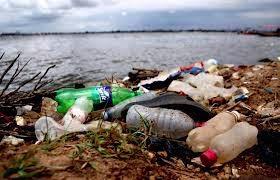 Scientists at the Swiss Federal Institute have isolated bacteria from soil in cold climates collected at high altitude and in polar regions. The objective was to identify microorganisms that produce enzymes that degrade plastics at low temperature.
Scientists at the Swiss Federal Institute have isolated bacteria from soil in cold climates collected at high altitude and in polar regions. The objective was to identify microorganisms that produce enzymes that degrade plastics at low temperature.
Dr. Joel Ruthi commented, “Microbial organisms obtained from the “plastisphere” of alpine and Arctic soils showed an ability to degrade plastics at 15C.” He added, “These organisms could help to reduce the cost and environmental burden of an enzymatic recycling process.”
 To date, organisms that demonstrate the ability to degrade plastics have required ambient temperatures in excess of 30C.
To date, organisms that demonstrate the ability to degrade plastics have required ambient temperatures in excess of 30C.
Bacteria and fungi were collected from Svalbard Island, Norway above the Arctic Circle from areas seeded with plastic debris from the research laboratory. The genera Actinobacteria and Proteobacteria showed beneficial activity as did ten genera of fungi of the phyla Aseomycota and Mucoromycota.
The evaluation of candidate bacterial and fungal genera showed that polyethylene was refractory to enzymatic action in contrast to mixtures of polyester-polyurethane and polybutylene adipate terephthalate and polylactic acid all of which were susceptible to bacterial and fungal enzymes.
The ability to degrade some plastics may be associated with the inherent production of cutinase that uses cutin, a plant polymer, as a substrate. This natural material is similar in structure to plastic polymers.
The research team consider that the approach to low-temperature degradation as a “promising method to optimize destruction of plastic”, although additional studies will be required to determine commercial feasibility.